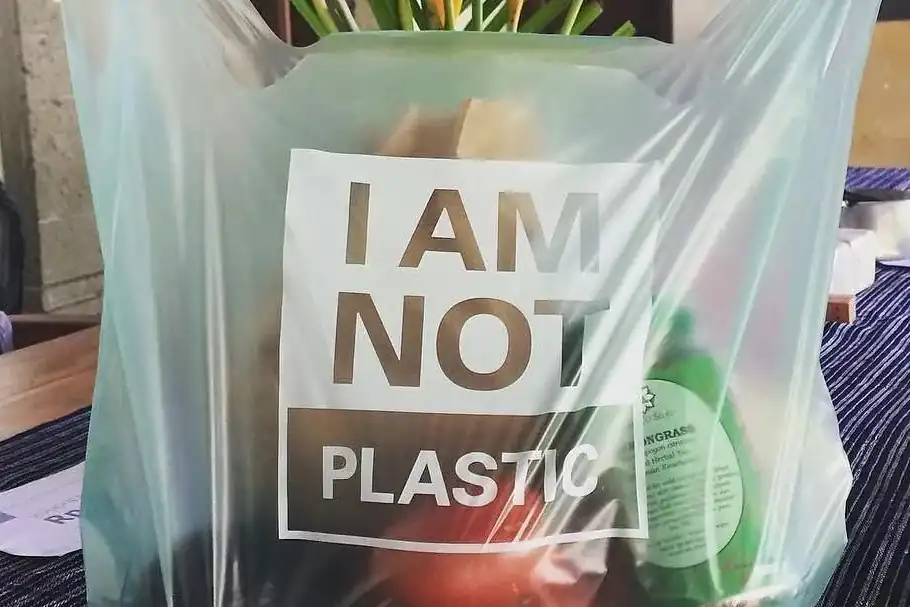Messi Biology states that in the face of the increasingly severe global plastic pollution crisis, the development and application of biodegradable plastics have become a crucial pathway to address environmental challenges. Biodegradable materials such as Polylactic Acid (PLA) and Polybutylene Adipate Terephthalate (PBAT) demonstrate immense potential; however, their degradation rates under natural conditions often fall short of expectations. In addressing this technical bottleneck, magnesium carbonate plays a unique and pivotal role as a “degradation switch.” By precisely regulating the degradation process, it offers an innovative solution for the large-scale application of biodegradable plastics.

The mechanism of magnesium carbonate in biodegradable plastics is built upon multiple physicochemical processes. When incorporated into polymer matrices like PLA or PBAT, magnesium carbonate first acts as an eco-friendly inorganic filler, partially replacing petroleum-based raw materials, thereby reducing material costs and improving certain processing properties. However, its most critical function becomes apparent during the degradation phase: in composting or soil environments, moisture and acidic metabolites produced by microorganisms react with the magnesium carbonate particles, initiating a hydrolysis reaction that generates magnesium ions, water, and carbon dioxide. This process creates two key effects within the plastic: First, it forms a microporous network structure. The dissolution of magnesium carbonate particles leaves numerous micron-sized pores within the material body. These pores significantly increase the contact area between the plastic and the environment, creating channels for deeper penetration of moisture and microorganisms. Second, it alters the local pH environment. The released magnesium ions and the slightly alkaline environment during degradation can promote the proliferation of specific microorganisms, accelerating their enzymatic degradation of the polymer chains.
This “self-enhancing” degradation mechanism significantly accelerates the decomposition process of plastic products. Compared to traditional biodegradable plastics, composite materials incorporating appropriate amounts of magnesium carbonate undergo faster molecular chain scission once degradation conditions are met. They fragment from larger pieces into tiny particles and are ultimately completely decomposed by microorganisms into water, carbon dioxide, and biomass, truly achieving environmental friendliness.
In this application, the performance indicators of magnesium carbonate are crucial. Particle size and distribution must be precisely controlled; nano- or sub-micron sized particles enable more uniform dispersion and a denser pore network. Surface properties need to have appropriate compatibility with the plastic matrix to ensure good dispersion during processing, yet not be overly hydrophobic as to impede the hydrolysis reaction during degradation. Most importantly is chemical purity; any harmful heavy metal impurities could be toxic to soil microbial communities, thus counteracting the original environmental intent.
Hebei Messi Biology Co., Ltd. has developed a specialized series of magnesium carbonate products for this emerging field. Utilizing advanced nano-preparation technology, the company offers ultra-high specific surface area magnesium carbonate with average particle sizes as low as 100 nanometers, capable of forming extremely uniform dispersion systems in matrices like PLA. The products undergo stringent surface modification treatment, ensuring both processing compatibility with polymers and the rapid initiation of the degradation process after their service life. It is particularly worth emphasizing that Messi Biology’s magnesium carbonate products have passed rigorous ecotoxicity tests, with heavy metal content far below relevant standard limits. They fully comply with EU REACH and US FDA requirements for food contact materials and biodegradable plastics, providing reliable assurance for downstream customers to develop truly environmentally friendly biodegradable plastic products.
As global plastic bans expand and consumer environmental awareness increases, biodegradable plastics with added magnesium carbonate are finding widespread applications in fields such as packaging, agricultural films, and disposable tableware. This innovative solution from Messi Biology not only provides material scientists with effective technical tools but also makes a substantial contribution to promoting the green transformation of the plastics industry.
